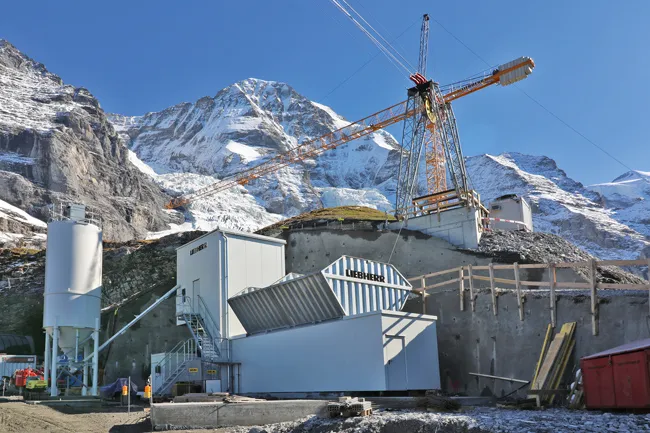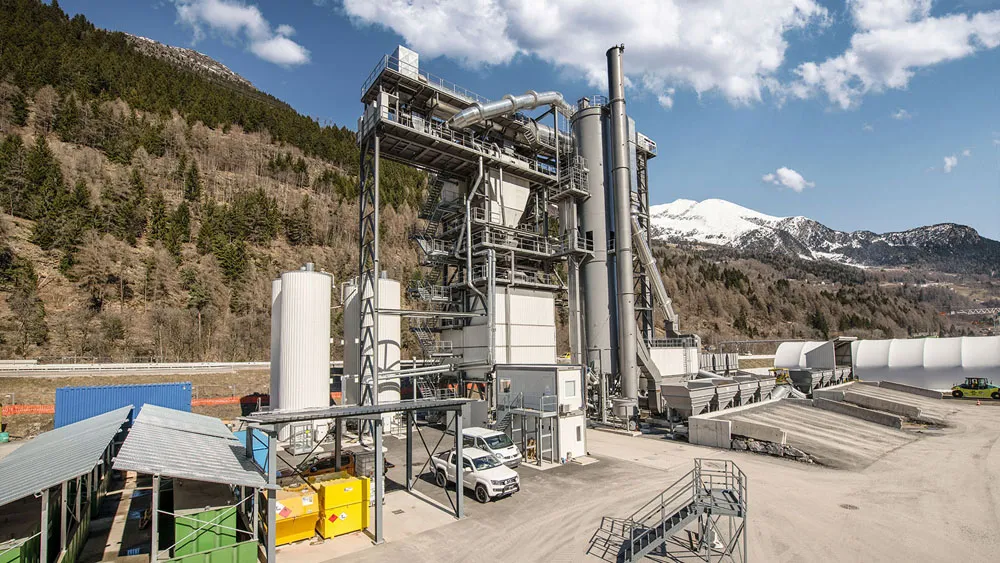
The project was a challenge both in terms of logistics and on-site operation.
The Grindelwald-Männlichen Gondola Cableway company and Jungfraubahn railway company are planning to build a V-cableway that will open up both the Eiger Glacier and the Männlichen (Bernese Alps).
From a joint terminal in Grindelwald-Grund, a tri-cable aerial cableway will lead to the Eiger Glacier. There will also be a 10-seat aerial gondola cableway to Männlichen.
In addition, the new Rothenegg station will give the V-cableway a direct connection to public transport.
The project managers at ARGE V-Bahn Oberland were looking for a mixing plant that could be transported by cable car. They decided upon Liebherr’s Compactmix 1.0 for the major V-cableway project in Grindelwald. The Compactmix 1.0 A-R/ RIM-M has a compact design and can be pre-assembled into transport-friendly modules.
Since the aerial cableway was not ready for operation by the specified assembly date, the plant components were transported to the construction site by two axle-truck and dump truck. The plant was then built on the Eiger Glacier at an altitude of 2,340m.
For optimum mixing results, the plant is equipped with a ring-pan mixer with agitator system. For concrete production at low temperatures the plant is also fitted with winterproof housing. Concrete production is up to 60m³ per hour.
The aggregates and cement are also delivered to the plant by aerial cableway and fed directly from the cable car into the series silo. Total production volume is expected to be worth nearly €418 million. Opening is planned for the 2020/2021 winter season.









